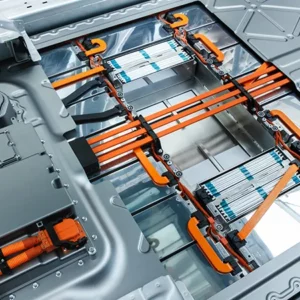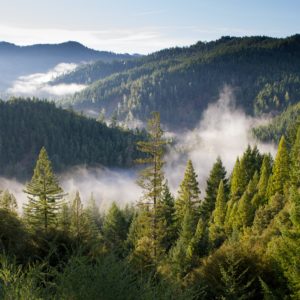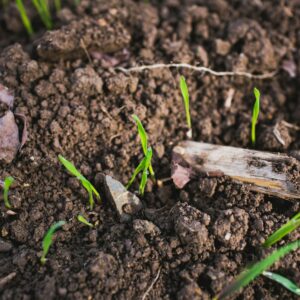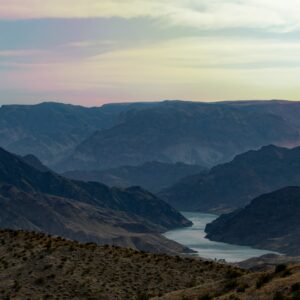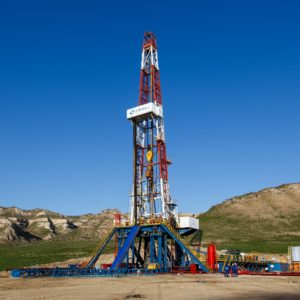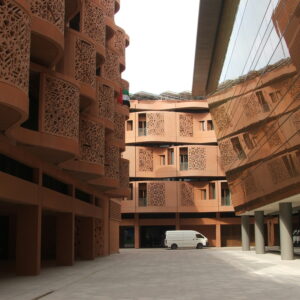The US Federal Energy Regulatory Commission (FERC) has rejected an amended interconnection service agreement proposing to increase the load capacity of Amazon’s data centre at the Susquehanna nuclear facility in Pennsylvania. The amended agreement was executed between Talen Energy, PJM Interconnection and PPL Electric Utilities, and aimed to increase capacity at Susquehanna from 300MW to...
What To Know About The Massive Lithium Discovery In Arkansas—And What It Means For EVs
Researchers have discovered a collection of lithium—a primary component in lithium-ion electric vehicle batteries—in Arkansas that, if recovered, could far exceed the projected world demand for lithium in car batteries in 2030. There might be 5.1 million to 19 million tons of lithium in the Smackover Formation brines in southern Arkansas, researchers at the United...
Wood products build the way to healthy forests of the future
The digital clock on the truck dash read 10:07am. The summer sun was nearing the peak of its steady ascent, but Forest Service Road #42 on the Gifford Pinchot National Forest was dark as twilight. Peering through the towering trees, it was hard to see much beyond the edge of the gravel road, the understory...
Can Rock Dust Be a Boon for Farmers and the Planet?
Enhanced weathering offers a promising pathway to mitigate climate change while simultaneously improving soil health and agricultural productivity.
Sparing the Land by Collecting Minerals at Sea
"In the end, the better question to ask is not whether humanity should collect deep-sea metals, but rather how. Before claiming that the cost of collecting nodules from the ocean floor is too high, researchers, activists, regulators, and companies should explore the degree to which operators can reduce impacts and define what obligations to hold industry accountable to. As such, calling for immediate moratoriums on deep-sea mining is not only premature, but a circumvention of constructive dialogue and negotiation."
Can scientists save your morning cup of coffee?
"Temperatures are rising and rainfall patterns shifting across South America, central Africa and South-East Asia, where most of the world’s coffee is grown. By the end of the century between 35% and 75% of the coffee-growing land in Brazil, the world’s biggest producer, could be unusable, according to a recent paper published in Science of the Total Environment by Cássia Gabriele Dias, an agricultural engineer at the Federal University of Itajubá, in Brazil."
The Florida Barrier Reef’s Last Stand
"If the reefs collapsed completely, it would be disastrous for the Florida Keys. According to the Florida Fish and Wildlife Conservation Commission, the reefs in Southeast Florida are valued at $8.5 billion and sustain 70,000 full- and part-time jobs. The barrier reef also protects the Keys from hurricanes and major storms by soaking up wave action."
Will Colorado River Conservation Commitments Make a Difference?
To really change the future of the Colorado River, innovative reforms are needed.
Natural Gas Can Deliver Energy Justice and Climate Progress in Africa
"Natural gas is central in delivering both energy justice and climate progress in African countries. Without it, there is a risk that the disparity in energy consumption will continue to grow. On a per capita basis, when excluding South Africa, consumption of energy in Sub-Saharan Africa is just 180 kilowatt-hour (kWh), compared to the United States’ 13,000 kWh and Europe’s 6,500 kWh. Expanding the supply of energy by leveraging natural gas ensures that demand that decarbonization does not come at the expense of inclusive economic development."
A Flawed Green City of the Future Holds a Secret to Taming Heat
"'Masdar City is dismissed because the tech side didn’t work. It's seen as an eccentric experiment of an oil-rich state,' says Sarah Moser, an assistant professor at McGill University in Canada who studies new cities. 'But what's simple and radical about it is that there’s almost no direct sunlight that reaches the pedestrian level.'"

